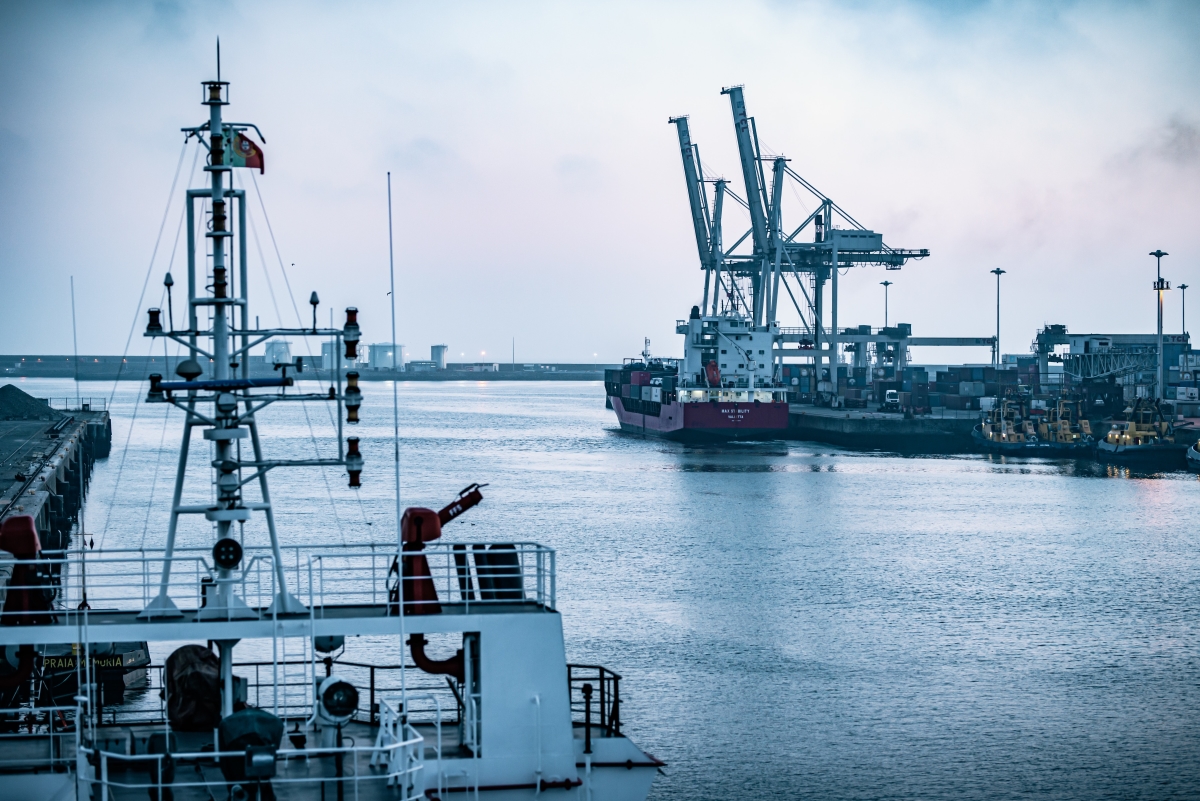
Written by Orestis Fitides
The shipping industry is one of the most important industries nowadays as it delivers most of the products found and used in our everyday lives, for example the petrol for your car or the coffee you may have bought this morning. One can imagine the devastation that Covid-19 has wrought on such a vital industry, impacting Europe in a variety of ways. In this opinion article, I will examine the data and clearly illustrate the major impact Covid-19 has had on European shipping.
Firstly, the European Maritime Safety Agency (EMSA) reports the number of ship calls at EU ports declined by 14% in the first 41 weeks of 2020, compared to the same period in 2019, with the most affected European countries being Spain, Slovenia, Croatia and Iceland. EMSA’s latest data, published on 16th October 2020, shows that during spring and summer 2020 shipping route traffic from Europe to China and from Europe to the United States declined, compared with the same seasons in 2019. The overall traffic flow from Europe to China flow decreased by 51.7%, and by 35.1% vice versa. Furthermore, the number of ship calls from the EU to China declined for general cargo ships, gas and bulk carriers. Specifically, there was a decline of 56.9% for vehicle carriers and of 55.7% for container ships, which represent the most important type of ship used for trading goods between China and Europe. Port calls between the United States and Europe were also affected. The number of port calls by container ships dropped by 40.9% from the US to Europe and by 19.8% from Europe to the US. It is the vehicle carrier vessel type that indicates the largest reduction in the number of port calls from Europe to the US , which the EMSA reports to be 79.4% with US to Europe shipping suffering a reduction of 44.9%.
The most affected vessels were passenger ships, roll on/roll off ferry ships and, of course, cruises. Every major cruise line in the world postponed departures in mid-March as the coronavirus outbreak grew, with some returning to operations in limited numbers of vessels and areas. The sanitation and safety requirements on cruise ships during the Covid-19 pandemic has been seriously questioned. This is due to the confined nature of cruise ships, which can rapidly spread the virus. This occurred, for example, on board the Diamond Princess in January 2020 and a number of the individuals on board are yet to recover. However, the shipping sector involving transporting passengers was the most heavily impacted by the pandemic. The maritime transport sectors continued to operate, ensuring the movement of goods and proving the strategic importance of maritime for our livelihoods. Finally, the Covid-19 pandemic has led to a slow-down of port operations, as an unprecedented number of vessels are “at anchor”, significantly increasing from 2019.
In conclusion, the pandemic has clearly had major impacts on the maritime trade and shipping industry, both in Europe and across the world. A slowdown in shipping inevitably has much broader implications and it is important that we recognise the impact that this has, not only on shipping in terms of raw data, but more broadly. For example the impact of Covid-19 will invariably involve job losses. Moreover, the delays in trade pose significant questions about the viability of our “just-in-time” supply chain models. I believe it is clear that the shipping industry, with its vital role in the supply chain, should be prioritised by policymakers.

 The ’Ndrangheta’s Infiltration and Threat to European Institutions
The ’Ndrangheta’s Infiltration and Threat to European Institutions  From Paper to Practice: How Grassroots Norms Undermine Gender Rights in Pakistan
From Paper to Practice: How Grassroots Norms Undermine Gender Rights in Pakistan  Exploited Childhoods: The Role of Global Corporations in Perpetuating and Mitigating Child Labour
Exploited Childhoods: The Role of Global Corporations in Perpetuating and Mitigating Child Labour  Human Rights Challenges in Addressing SLAPPs in Media, NGOs and Journalism in the EU
Human Rights Challenges in Addressing SLAPPs in Media, NGOs and Journalism in the EU 


